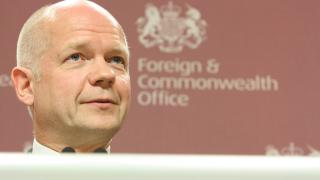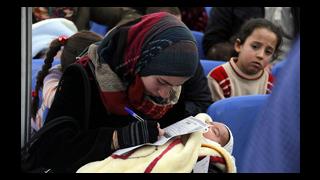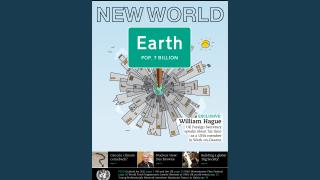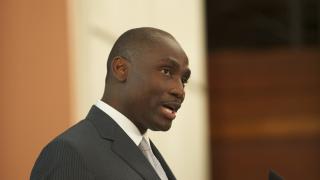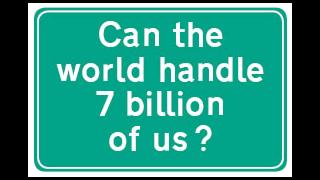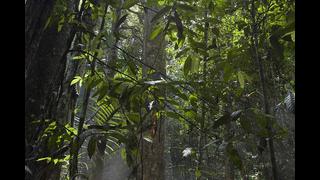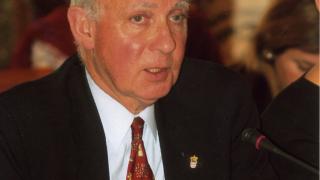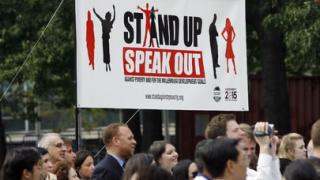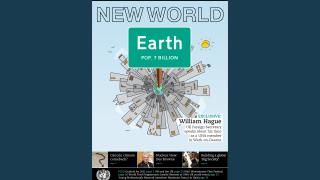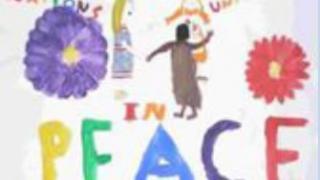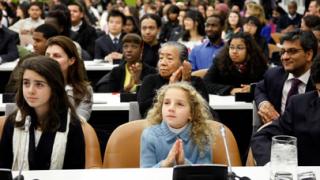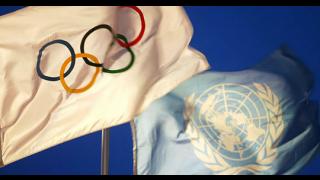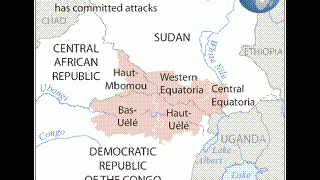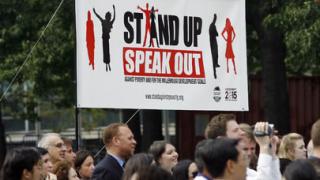
The ‘Big Society’, Prime Minister David Cameron’s vision for Britain, has generated countless column inches debating what exactly it entails. Even its fiercest critics realise that as an idea the ‘Big Society’ could prove to be inspirational. But how does one implement a concept that is based on local innovation, responsibility and enterprise – all bespoke by definition?
Perhaps surprisingly, we can look to the UN for global examples of how to ‘act local’. While we often speak about building the capacity of individuals and communities in developing countries - indeed, such initiatives are central to drives such as the Millennium Development Goals - we rarely seek to apply the lessons learned to our own societies.
The UN has long had to deal with severe resource constraints. Its core two-year budget for 2010-11 is $5.2 billion dollars, less than half the cost of the 2012 London Olympics. It employs fewer people globally than McDonald’s or Coca Cola. In short, the UN is a far cry from the bloated bureaucracy its critics love to talk about. In order to deliver its expanding development and humanitarian programmes it has needed to adapt and harness the support of a range of actors, including those people at which its programmes are targeted. Consequently, its work on the ground provides a tried-and-tested body of evidence for the ‘Big Society’.
How does this work in practice? The UN increasingly acts as a convenor and coordinator, ensuring that communities, NGOs, businesses, governments and international agencies work together by creating the framework for partnerships. One example is the UN Global Compact, a voluntary corporate citizenship initiative that now includes some 6,000 companies in over 130 countries. A member of the Compact, UK- based Unilever has helped the UN to implement HIV/AIDS programmes, such as training peer health counsellors. Deutsche Post DHL meanwhile provides pro bono disaster relief, handling, for instance, the logistics of relief goods as it did in Haiti following the devastating earthquake last year.
NGOs too are valuable UN partners. Much of the World Food Programme’s deliveries are now undertaken by national NGOs that understand local sensitivities. NGOs are also increasingly involved in planning interventions, at times leading certain aspects of a humanitarian operation as part of a larger UN team. They participate at the intergovernmental level as well, submitting evidence to UN bodies and lobbying governments. UNA-UK, for example, is proud of the role it played through the Cluster Munitions Coalition in calling for an international treaty banning these weapons.
The UN also works directly with people, be it empowering them through microfinance initiatives, using local radio stations to run literacy programmes or mobile technology to set up medical advice systems. The Jokko Initiative in Senegal is a great example of a partnership between UNICEF, the UN Children’s Fund, and a community-development NGO to promote group decision-making in villages. Jokko makes it possible to communicate with a network of people by sending text messages, so everyone from the local nurse to the local imam can inform their community about a UNICEF vaccination drive, or organise a debate on planned construction work. The majority of participants to date are women and girls, drawn to the social empowerment the tool provides. What began, then, as a drive to do more with less has today become an integral part of how the UN operates.
Writing in the Guardian last year, Cameron said that the ‘Big Society’ idea is based on “a profound faith in my fellow human beings and a healthy awareness of the state’s limitations”. The UN encapsulates both sentiments. Created, according to its founding document, the UN Charter, to prevent war, reaffirm human dignity and promote social progress, what is the UN if not an act of faith in humanity? The rest of the Charter, meanwhile, is an exercise in pragmatism, recognising the limitations of states and of itself. Given that the most pressing issues it needs to tackle - such as climate change - defy national borders and require profound social change, the UN is only too aware of these limitations.
For this reason, UNA-UK and its sister UN associations around the world have been working since the UN’s inception to build a peoples’ movement for the UN. We believe that in order for the UN to genuinely transform international relations, it must involve those that it is intended to serve, in the opening words of the UN Charter: “we the peoples”. This is why UNA-UK works to inspire people to find out more about the UN and how it relates to our lives. Our latest initiative, Lobby for the UN, launched on UN Day (24 October) aims to foster a national debate on international affairs, focusing in particular on the local, national and global dimensions of sustainable development and nuclear weapons. Our local branches and university groups across the country have been supporting us at a community level, lobbying their MPs, working with schools and fundraising for charitable causes.
As we begin a new year, let us work together to encourage others to be informed and engaged citizens of the world.
Natalie Samarasinghe is editor of New World and Head of Policy & Communications at the UN Association of the UK.


